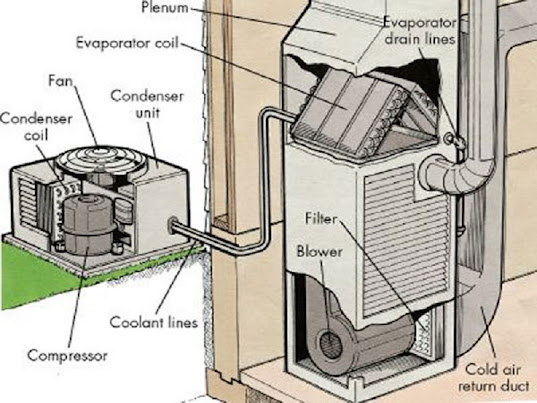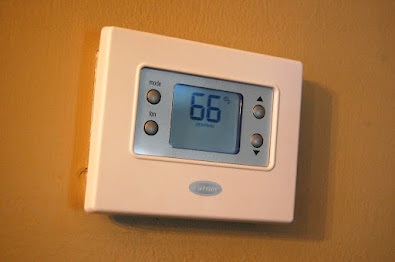9 Things you should check before upgrading your HVAC system
One of the most important things to do before upgrading your HVAC system is to ensure you are aware of the potential risks of a new installation. In addition, it is crucial to choose the right system for your home. The following nine items can help you make this decision:
Factors to consider before upgrading your HVAC system
1. Airflow
This is probably essential if you want your HVAC to work correctly. First, check the airflow at the intake and exhaust vents. If they aren't opening fully, your system is clogged or not adjusted correctly. You may even need to adjust the registers themselves.
2. Check the Thermostat
The thermostat controls how much air is flowing through your entire house. Most home systems have two settings - heating/cooling (HVAC) mode and fan only. When set for heating/cooling, the fan circulates air throughout the house. In fan only, the fans circulate just enough air to make it feel comfortable in your room. A lot of older homes don't even have a thermostat in them anymore, so some people would say that the fan-only setting isn't necessary. But I think you still need a manual adjustment at least once per year. That way, you know if anything's off with the temperature.
3. Change Filters
Changing filters is a good idea if you've allergies or asthma. Many places offer monthly subscriptions where you get a filter change along with having your AC checked and cleaned.
4. Clean Out Your Ducts
It sounds simple, but many people forget about cleaning their ducts for years. Dust and debris build up over time and cause problems down the road. Make sure to vacuum them out and wash them well with disinfectant!
5. Inspect Electrical Wiring
Check and clean all electrical wiring to avoid any short circuits or sparks that could start fires. Be careful around high voltage wires as well.
6. Replace Fuses
Fuse boxes tend to get dusty and dirty over time, and it's dangerous to leave old ones in place. Please don't wait until something goes wrong; replace them right away.
7. Test Smoke Alarms
Smoke alarms shouldn't be taken lightly - they're designed to protect everyone in your house. Make sure yours work by testing them regularly - especially after installing new smoke detectors.
8. Check the Refrigerant Level
If you are upgrading your HVAC system, it's important to check the refrigerant level. The refrigerant level in your AC system can affect the system's performance. You should also check the filters, compressors, and ducts in your system to make sure they are clean and free of debris. If the refrigerant level is not correct, a skilled technician can often adjust the AC refrigerant level to keep the system running efficiently. But, a professional HVAC technician can give you the right guidance.
9. Additional Considering Issues
Is my heating unit servicing properly?
Check your thermostat to see if it's set correctly for the room. A thermostat is set no lower than 72 degrees Fahrenheit. Also, if the temperature gets too hot or cold, it could mean that the fan motor in your heater is not functioning correctly.
How much was your last service bill?
You want to make sure you're getting value for money from your AC services. So shop around to find the best deal and compare prices across brands, models, and dealers to ensure the correct model meets your needs and that you're receiving adequate customer service.
In conclusion, if you are upgrading your HVAC system, it is crucial to check some of the 9 things before doing so. These things can help protect your home from damage and ensure your comfort while using your new system.
Should I replace my furnace now?
Furnaces tend to last anywhere from 15-20 years, but if yours is over 10 years old, you might want to consider replacing it. Because furnace efficiency decreases after about ten years, less fuel is burning inside the furnace to keep you warm. Please don't wait until your furnace breaks down completely to fix it; instead, replace it early while it still works fine.
Do I have enough insulation?
Insulation keeps your home warmer in winter and cooler in summer, so if you feel that your home is lacking in this department, it's probably a good idea to add some. Look below the surface to find any gaps or cracks in your attic floorboards and seal them up. Then, please turn off the gas valves underneath your sinks, stove, and tub/shower and install foam caulk along their seams.
Does the AC work properly?
Keep an eye on your home's thermometer to ensure that both the upstairs and downstairs areas stay comfortable. For example, if your upstairs room feels hotter than the rest of your home, it could mean that your AC isn't working efficiently. Try turning off the switch outside your front door and waiting 30 minutes. If the temperature remains the same, your AC is defective.
Is Your Unit Too Small?
One way to save cash on your next HVAC replacement is to size it appropriately. For example, consider purchasing a bigger AC unit if you have a more prominent family or live in a space with less natural airflow. That said, don't wait until springtime to consider upgrading — you should do it while the weather is still cold. That means that even though you'll probably pay more upfront, you won't have to buy more units once summer hits.
Summary
In conclusion, if you are upgrading your HVAC system, it is crucial to check some of the 9 things before doing so. These things can help protect your home from damage and ensure your comfort while using your new system.





Comments
Post a Comment